Last summer ( I am just a little behind with my blogging), the problem arose again, and I was ready. I had bought the pattern from Colette patterns thinking " Easy, Quick, Has Sleeves!". I was right about these elements, but there was no immediate success in my annual quest for a tried and true summer-dress-for-work pattern.
I first whipped it up in a drapy rayon from Lincraft, and was not a fan. Admittedly, I had lengthened the skirt in an attempt to make it Sri Lanka appropriate, but the main contributribiting factor to an appearance of severe dowdiness was the wide and droopy neckline. This is a common finding in reviews of this pattern.
I chopped off the bottom half of the dress and made a practical maxi skirt by adding a waistband (before taking photos- I wasn't in blogging mode at the time) so the original project was not a complete disaster. It did however, leave me with an unpleasant feeling of unmet challenge, so I decided to try the pattern again, with neckline modifications and a less drapey fabric.
In the next attempt I used a non-even plaid linen from Michael's Fabrics. I bought it in a linen bundle a few years ago, when the Australian dollar was more robust, and I am very pleased with the autumnal colours, a rare find in a plaid locally.
In order to keep this a relatively quick project, I cut the sleeves, waistband and centre panels of the skirt, on the bias to minimize the need to match the checks, and used Sheryl's marvellous tip for sewing matching plaids for the side seams. Thanks Sheryl!
Originally, I was quite pleased with the dress, and did not, in this fabric, find the neckline at all problematic during construction. The gathering and folding adjustments I added to the neckline all had to be undone again, to give the neckline the original dimensions, which were not a bad on me. Clearly the neckline width is fine (for me) in a stable fabric.
The photos of this dress show it in it's second season of wear, and I find it entirely practical, reasonably comfortable, and I am happy that it projects a sufficiently professional appearance for me to sit in a back office and do piles of dastardly paperwork.
However, in sewing perfectionist mode, I have never been entirely happy with the fit at the shoulders nor the neckline. The dress pulls and rides up slightly, although not in a manner that cannot be controlled with a handy lingerie guard. You can also see that the bias waistband has become somewhat bulgy if I don't stand straight.
Normally, with a regular set in sleeve, I make a square shoulder adjustment of about 1cm, front and back, but I have never bothered doing this in a raglan sleeve garment before, as this cut seems much more forgiving to my figure variation.
On reflection, it occurred to me that most of the raglan sleeved garments I have made previously are knits, so require less fitting, or have quite a gathered neckline, such as a bishop/peasant style blouse. So, in spite of sewing for, ulp, over 30 years now, I am still learning things about fitting, and fabric choice.
So, I altered the sleeve for my next version.
McCall's post on altering raglan sleeves
This pattern is still in the un-met challenge category.
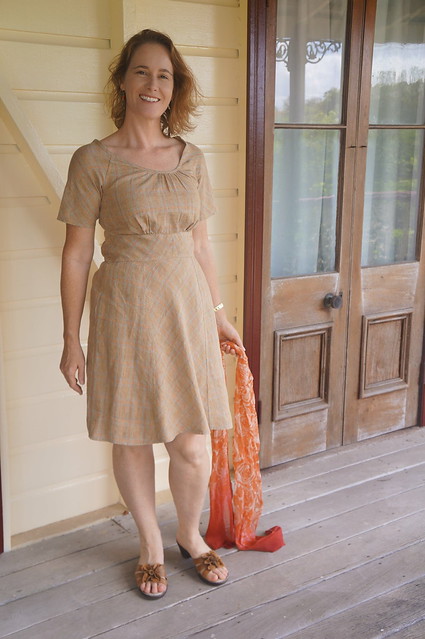
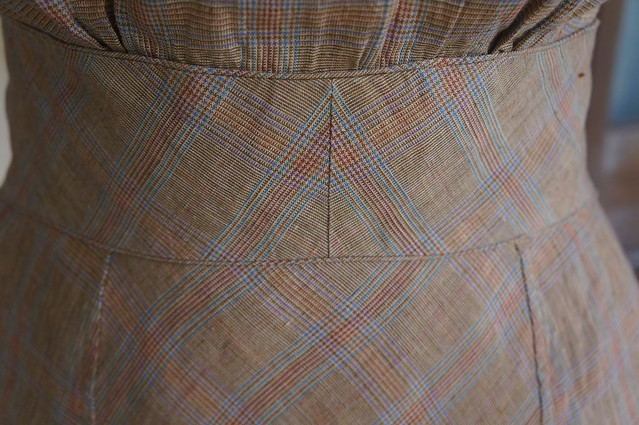
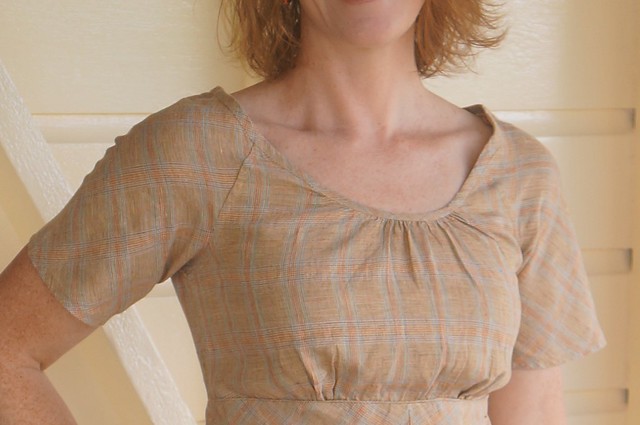
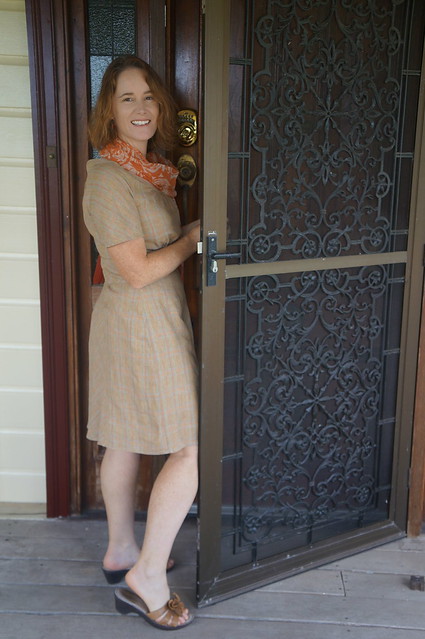
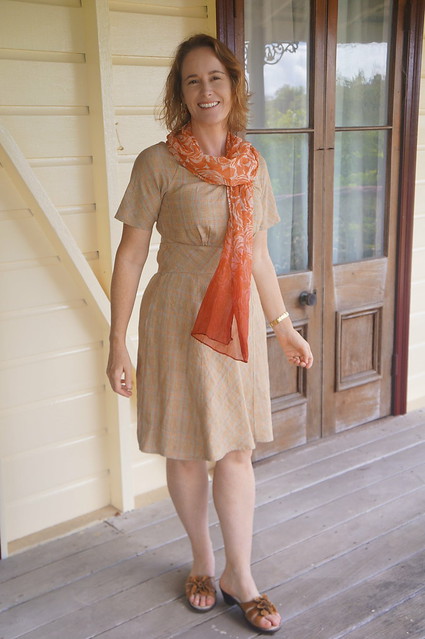
3 comments:
Well hello there! Nice to see you around again. Your dress looks lovely and I love the bias bits and the orange stripe of the plain showing through. There is always so much to know... it never ends I feel and by making different things all the time, skills don't develop in a linear fashion (ha get that), unlike a tailor for example who may just make suits and refines the craft. "Sewing" covers so much... you have made such a variety of tricky stuff, I'm always in awe.
The dress looks lovely and cool when accesorized with the scarf. Ah yes I too have learned the hard way that raglan sleeves must also be altered for my upper rounded back/square shoulder body. Info on alterating raglan sleeves is hard to find on the internet so thanks for that link.
I can't stand a scarf in hot weather even in Melbourne. I'd be tearing that thing off. However it does look good. Its nice to see a new post from you. Good luck with fine tuning. A go to pattern for quick makes is worth the effort.
Post a Comment